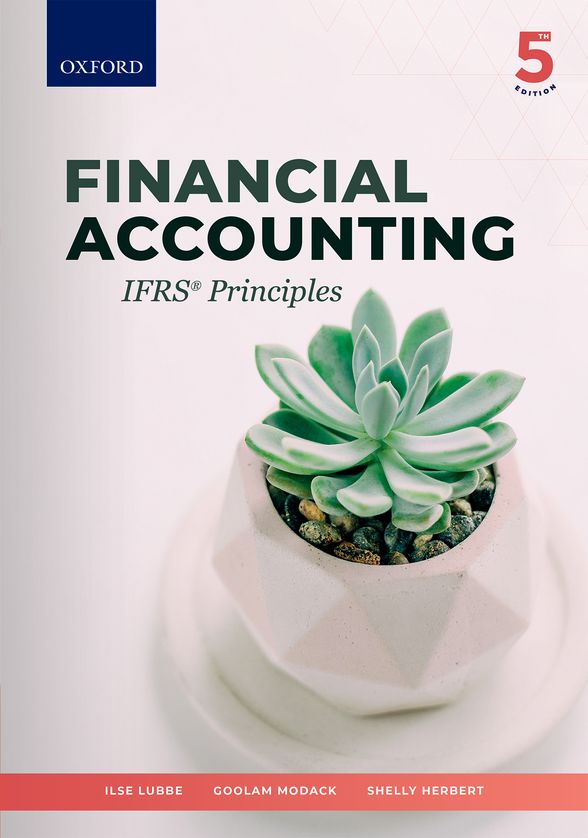The fifth edition of Financial Accounting: IFRS® Principles is a concepts-based South African text that assumes a basic knowledge of financial accounting, and then helps readers understand and apply the International Financial Reporting Standards (IFRS® Standards). It also references the IFRS for SMEs® Standard, which is applicable to small and medium-sized enterprises. The book has been updated to bring it in line with the 2018 Conceptual Framework. It has been revised to be more accessible, and now includes simpler, more concise explanations, conceptual diagrams and additional worked examples.
The pedagogy of the book supports the development of crucial strategies and sound financial reporting knowledge, providing an excellent balance between theory, practice and strategy. It is suitable for second and third-year courses in financial accounting on the Chartered Accountant or General Accountant stream at universities as well as universities of technology.
Features
- A completely reorganised structure, with the 26 chapters grouped into 3 parts, covering the overall financial reporting environment, the elements of the financial statements and the accounting for groups.
- Several new features to support students in their studies: A 'Concept summary' in the form of a mind map at the beginning of each chapter, which outlines the key concepts covered in that chapter, 'Something to watch' boxes that refer students to relevant conceptual videos on the University of Cape Town's Learn Accounting website, 'Ethical dilemma' boxes highlighting ethical considerations related to the topic of each chapter,'Threshold concept' features that draw attention to the key concepts that students need to grasp in order to build on their
conceptual
foundation and make further progress', A feature called 'Key points to take from this chapter', which summarises the most important concepts.
- Information about recently issued IFRS Standards, such as IFRS 15, Revenue from Con tracts with Customers, and IFRS 16, Leases.
- A test bank, teaching suggestions, and solutions to the textbook questions are available for prescribing lecturers on Learning Zone. Students have access to an additional test bank and selected solutions.
Part 1: Financial Reporting
1The financial reporting environment and frameworks
2Presentation of financial statements
3Statements of cash flows
4Owner's equity
5Accounting policies, changes in accounting estimates and errors
6Earnings per share and headline earnings per share
7Analysis and evaluation of financial statements
Part 2: Elements Of Financial Statements
8Property, plant and equipment
9Investment properties
10Intangible assets
11Inventory
12Financial instruments
13Impairment of assets
14Provisions, contingent liabilities and contingent assets
15Leases
16Income taxes
17Borrowing costs
18Events after the
reporting
period
19Non-current assets held for sale and discontinued operations
20Revenue from contracts with customers
21Foreign exchange transactions
22Employee benefits and share-based payments
Part 3: Accounting for Groups
23Business combinations
24Separate financial statements
25Consolidated financial statements
26Accounting for associates, joint ventures and joint arrangements
